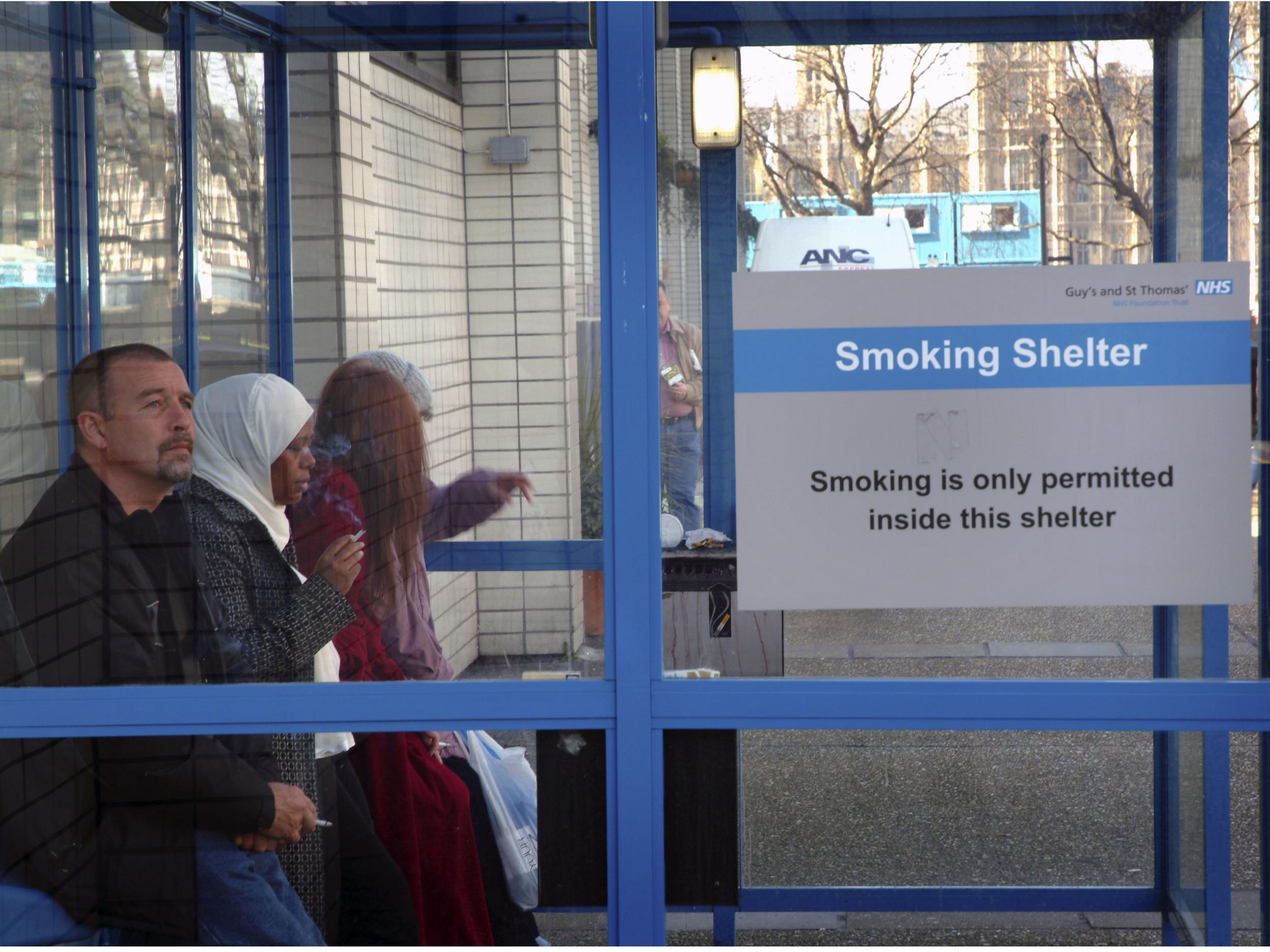NHS staff smokers cost health service £200m a year with cigarette breaks and sick days, report finds
Lost productivity from smoking breaks alone cost £99m with total per smoker approaching £3,000 a year

Your support helps us to tell the story
From reproductive rights to climate change to Big Tech, The Independent is on the ground when the story is developing. Whether it's investigating the financials of Elon Musk's pro-Trump PAC or producing our latest documentary, 'The A Word', which shines a light on the American women fighting for reproductive rights, we know how important it is to parse out the facts from the messaging.
At such a critical moment in US history, we need reporters on the ground. Your donation allows us to keep sending journalists to speak to both sides of the story.
The Independent is trusted by Americans across the entire political spectrum. And unlike many other quality news outlets, we choose not to lock Americans out of our reporting and analysis with paywalls. We believe quality journalism should be available to everyone, paid for by those who can afford it.
Your support makes all the difference.NHS staff smoking habits cost the health service more than £200m a year in cigarette breaks, sick days and treatment, a report on the £1bn a year avoidable cost of tobacco dependency has found.
There are more than 73,000 smokers among the 1.2 million NHS employees in England and the lost working hours from their combined smoking breaks add up to £99m a year, the Royal College of Physicians’ tobacco advisory group has said.
Though smoking breaks are discouraged in the NHS, the report estimates smokers have an additional 10 minutes of breaks per day.
Smokers also had 56 per cent more sick days, amounting to £101m in NHS costs, and cost £6m in treating staff with preventable diseases caused by tobacco. In total, the RCP panel said, this amounts to £2,800 per staff smoker.
“The NHS has more incentive to do that than any other employer on the planet, and certainly in the UK, it doesn’t just lose the productivity it pays for the illness its employees develop,” Professor John Britton the chair of the RCP tobacco advisory group told The Independent.
These costs are “hiding in plain sight” and are in addition to the nearly £620m a year spent by NHS hospitals treating heart disease, lung cancer and other respiratory conditions caused by smoking, the report added.
”Smoking, the biggest avoidable cause of death and disability in the UK, is hiding in plain sight in our hospitals and other NHS services,” Professor Britton added.
“The NHS must end the neglect of this huge opportunity to improve our nation’s health.”
The report recommends that everyone be asked about their smoking status when coming into hospital as part of routine NHS care, and then be offered smoking cessation services unless they explicitly opt out. Trials of this opt-out model in hospitals in Canada were able to double quit rates.
This could be particularly important in mental health services where smoking costs the NHS £204m a year. People in long-term NHS care are much more likely to smoke and typically have worse physical health too, and about £28m is spent on additional drug costs for their treatment.
To achieve all this, the authors are calling for the NHS to take on responsibility for smoking cessation services and restore ring-fenced budgets for these schemes. These have been heavily cut in many areas after becoming the responsibility of cash-strapped councils in the last health service reforms.
Smoking cessation, which includes motivational counselling and support as well as pharmacological aids such as nicotine patches, is among the most cost-effective way of helping people quit.
The RCP also wants all NHS clinical staff to be trained in skills to help smokers quit and for hospitals to keep expanding smoke-free zones on NHS property, though it says ecigarettes, which can help smokers quit, should be allowed.
“This is an open goal for the NHS,” added Dr Sanjay Agrawal, a consultant in respiratory and intensive care medicine in Leicester and a member of the report group.
Duncan Selbie, chief executive of Public Health England, welcomed the “timely” report, adding: “One in four hospital patients are smokers, costing hospitals £1bn a year.
“We fully support the Royal College in saying by far the majority of the NHS could be doing more to help smokers to quit.”
Join our commenting forum
Join thought-provoking conversations, follow other Independent readers and see their replies
Comments